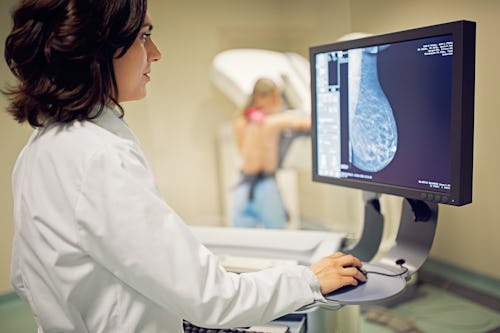
The United States Preventive Services Task Force (USPSTF) has released new guidelines for mammograms and now recommends all women should start breast cancer screenings by the age of 40 and should continue to get them every other year. This recommendation is 10 years earlier than previous guidance and is on par with other leading the medical organizations’ advice on breast cancer screenings.
Previously, the USPSTF recommended that women age 40 and up speak personally with their doctor to see if a breast cancer screening was right for them, but now this guidance applies to all women age 40 to 74 who are at average risk of breast cancer. Dr. Carol Mangione, a co-author of the new recommendation, told NPR this update is due to new evidence, which supports starting mammograms at a younger age. “New and more inclusive science about breast cancer in women younger than the age of 50 has allowed us to expand our prior recommendation,” Mangione told NPR. “There are a lot more women getting breast cancer, and that influences our recommendation.”
This new breast cancer screening guideline is also on par with the recommendations from both the American College of Obstetricians and Gynecologists (ACOG) and the American Cancer Society (ACS). The ACS recommends that all women with an average or below-average risk of cancer begin mammograms at age 40, and the ACOG — recognizing that breast cancer is the second leading cause of cancer death in women — recommends that clinical breast exams should begin at age 25 and performed every one to three years depending on a woman’s risk. Starting at age 40, the ACOG recommends yearly breast exams and yearly mammograms.
Research has shown that breast cancer rates have risen in women in their 40s, and the new guidelines are meant to decrease those numbers as breast cancer is very treatable when it’s caught early.
Nearly all organizations with cancer screening recommendations advise that more guidance should be shared on how different ethnicities are at different risks for breast cancer and what things like dense breasts can mean for accurate screening. But for now, it’s all about getting women in for their mammograms by the time they turn 40.
0 comments:
Post a Comment